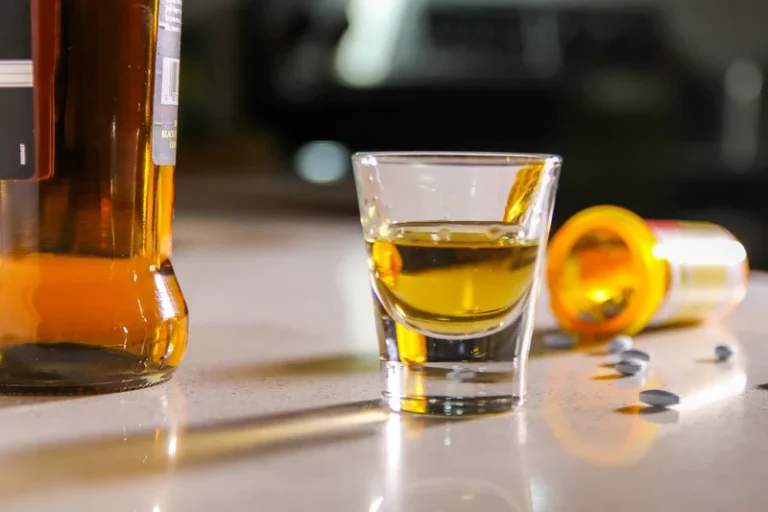
Before you go, you will have a thorough discharge plan worked out, and support on leaving so that you don’t struggle in the initial weeks afterwards. To further drive the point home, what happens when you alcoholism symptoms order a meal to be delivered at home? If you see a vehicle with a pizza chain emblazoned on the side pull up or perhaps a man with a box walking to the door, you’ll start salivating. Be wary of anyone that advises an at-home detox from alcohol with herbal remedies or magic pills. Detoxing from alcohol is not only uncomfortable but can also be deadly. “Medications are the beginning of how you make the psychological change that needs to occur,” says Gerard Schmidt, an addiction counselor and president of the Association for Addiction Professionals.
- However, this self-medication can quickly spiral into a destructive long term cycle, as alcohol is a depressant that can exacerbate symptoms and worsen conditions.
- After over 15 years of developing expertise and leading strong clinical teams in the mental health field, she pivoted to apply her deep knowledge of mental health in the tech industry.
- Self-help groups usually consist of a small group of recovering alcoholics and a professional therapist.
- Friends and family members of people who have an alcohol addiction can benefit from professional support or by joining programs like Al-Anon.
Identifying Problem Drinking in a Family Member or Loved One
This is because our learning processes are designed to help us learn from our surroundings (don’t go near the lake; little Jimmy fell in the other day and was eaten by a crocodile). A story helps us to imagine the situation and learn artificially from the other person’s situation. Often this is by a concerned partner or friend, and sometimes it’s by someone who suffers from the disease.
- Many treatment centers combine some or all of these different levels of care.
- After completing a detox program, many choose to move on to inpatient alcohol rehab.
- Being aware of these triggers and knowing what triggers activate you or your loved one may help prevent relapse.
- “Medications are the beginning of how you make the psychological change that needs to occur,” says Gerard Schmidt, an addiction counselor and president of the Association for Addiction Professionals.
How Alcohol Affects The Brain And Body
Research shows that naltrexone works best for people who have already stopped drinking for at least 4 is alcoholism curable days when they begin treatment. You take it daily as a pill or get a monthly injection at your health care professional’s office. The medication can help you have fewer days when you drink heavily as well as drink less overall. The one that’s right for you depends on your situation and your goals. Many people find that a combination of treatments works best, and you can get them together through a program.
What Is a Safe Level of Drinking?
- Some therapists use the harm reduction model, which focuses on decreasing drinking instead of complete sobriety.
- “That’s where this idea of sober-ish comes to play.” This can involve having alcohol-free days, ordering fewer drinks or turning to nonalcoholic beverages as a way to preserve the social benefits of drinking.
- There’s no shame in having the urge to relapse, but telling someone sooner rather than later will allow them to get you the help you need.
- Some people develop alcoholism because of pressure from their peers who are heavy drinkers too.
- If that person has been diagnosed as an alcoholic, the answer is “no.” Alcoholics who try to cut down on drinking rarely succeed.
- This form of treatment is suitable for individuals with a lower level of alcohol dependence, a stable home environment, and a robust support system.
Age of introduction plays a huge factor in life-long alcoholism. A national survey found that those who started drinking before age 15 were 5 times as likely to develop a substance https://ecosoberhouse.com/ use disorder than those who waited until they were 15. Additionally, the study indicated that this occurred more frequently in women. We at SEE Purpose, an alcohol addiction treatment center in Bloomington, IN are here to tell you all about the causes of alcoholism, whether or not it can be cured, and how we treat it at our luxury treatment center. Someone with an alcohol addiction who has remained sober for months or years may find themselves drinking again. They may binge drink once or drink for a period of time before getting sober again.

More on Substance Abuse and Addiction
Time and training are the most important aspects of alcoholism treatment. While you’ll never get rid of the cravings completely, you can diminish them and train yourself in how to avoid situations involving alcohol. Rather than see relapse as a setback, it can be helpful to view it as an essential part of the recovery journey.

I have seen this to mostly be the case with thousands of my brothers and sisters in recovery who I have had the honor to interact with. People aren’t static, which is what reminds us to never give up hope when dealing with an addicted loved one, no matter how dire the circumstances appear to be. These limitations make it hard to know how much to rely on studies that find health risks (or benefits) to alcohol consumption. Even among the positive studies, potential health benefits are often quite small. In addition, alcohol may reduce the risk of one condition (such as cardiovascular disease) while increasing the risk of another (such as cancer).

Treatment Options
In order for treatment to work, the person with an alcohol addiction must want to get sober. Feeling guilty, depressed, anxious, and stressed frequently coexist with alcohol abuse, creating a complex and intertwined relationship. For many, alcohol temporarily helps manage the persistent desire to avoid feeling bad—it temporarily relieves symptoms of depression and anxiety, providing a way to self-medicate in a socially acceptable manner.
Most residential treatment programs include individual and group therapy, support groups, educational lectures, family involvement, and activity therapy. These interactions may result in increased risk of illness, injury and even death. Alcohol’s effects are heightened by medicines that depress the central nervous system, such as sleeping pills, antihistamines, antidepressants, anti-anxiety drugs and some painkillers. In addition, medicines for certain disorders, including diabetes, high blood pressure and heart disease, can have harmful interactions with alcohol. If you are taking any over-the-counter or prescription medications, ask your doctor or pharmacist if you can safely drink alcohol. The staff here at SEE Purpose have the unique opportunity to know each client and work with them closely.
